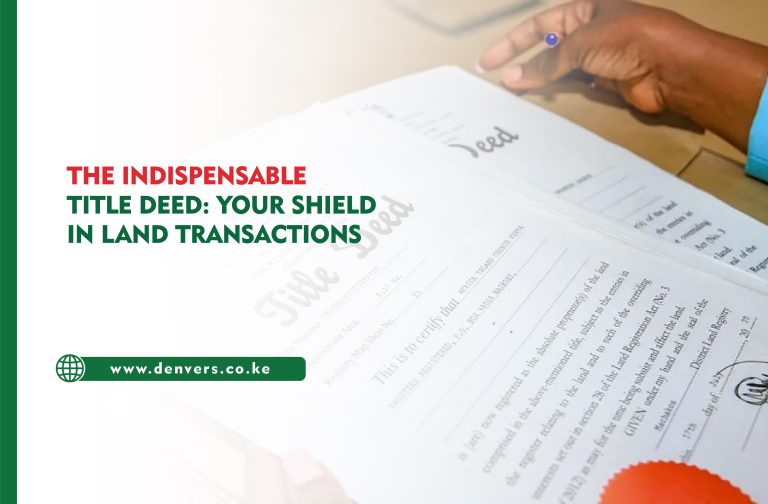How Long Can a Title Deed Be Held in Trust in Kenya?
Understanding Trusts and Title Deeds in Kenya
In Kenya, a title deed is a legal document that serves as proof of ownership for a piece of land. It outlines the boundaries, size, and ownership details of the property. A trust, on the other hand, is a legal arrangement where one party (the trustee) holds and manages assets for the benefit of another (the beneficiary).
When a title deed is held in trust, it means that the legal ownership of the land is vested in the trustee, but the beneficial ownership remains with the beneficiary. This arrangement can serve various purposes, including:
- Succession planning: To ensure that the property is passed on to the intended beneficiaries after the owner’s death.
- Asset protection: To shield the property from creditors or other legal claims.
- Estate management: To facilitate the management and administration of the property, especially in cases where the owner is incapacitated or unable to manage it themselves.
Duration of a Trust in Kenya

The duration for which a title deed can be held in trust in Kenya is not explicitly defined by a specific statute. However, there are several factors that can influence how long a trust can last:
- The Trust Deed: The trust deed is the legal document that establishes the trust. It outlines the terms and conditions of the trust, including its purpose, duration, and the rights and obligations of the trustee and beneficiaries. The duration of the trust is typically specified in the trust deed.
- Perpetuity Rule: The perpetuity rule is a common law principle that limits the duration of trusts. It prevents trusts from being created for an indefinite period, as this could lead to the accumulation of wealth and power in the hands of a few individuals. In Kenya, the perpetuity rule has been modified by the Trustees (Perpetual Succession) Act, which allows trusts to be created for a period not exceeding 80 years.
- Beneficiaries: The duration of a trust can also be influenced by the age or other circumstances of the beneficiaries. For example, a trust created for the benefit of a minor child may be designed to last until the child reaches adulthood.
- Purpose of the Trust: The purpose of the trust can also affect its duration. For example, a charitable trust may be designed to last indefinitely to ensure that the charitable objectives are achieved.
Key Considerations When Holding a Title Deed in Trust

If you are considering holding a title deed in trust in Kenya, there are several important factors to consider:
- Choosing a Trustee: The trustee is responsible for managing the trust property and ensuring that it is used for the benefit of the beneficiaries. It is important to choose a trustee who is trustworthy, competent, and willing to fulfill their fiduciary duties.
- Drafting a Clear Trust Deed: The trust deed is a crucial document that outlines the terms and conditions of the trust. It is important to ensure that the trust deed is drafted clearly and accurately to avoid any ambiguity or disputes in the future.
- Compliance with Legal Requirements: Trusts in Kenya are subject to various legal requirements, including registration with the Registrar of Documents. It is important to ensure that all legal requirements are complied with to avoid any legal issues.
- Tax Implications: Trusts can have tax implications for both the settlor (the person who creates the trust) and the beneficiaries. It is important to seek professional advice from a tax expert to understand the tax implications of holding a title deed in trust.
Conclusion
Holding a title deed in trust can be a useful tool for estate planning, asset protection, and succession planning in Kenya. However, it is important to understand the legal and practical implications of this arrangement before making a decision. By carefully considering the factors discussed above and seeking professional advice, you can ensure that your trust is structured in a way that meets your specific needs and objectives.
Do you have questions on How Long Can a Title Deed Be Held in Trust in Kenya or suggestions on the above and future topics? We’d love to hear from you! Reach out to our property experts at [email protected] or call us on 0701730267







